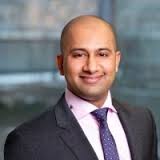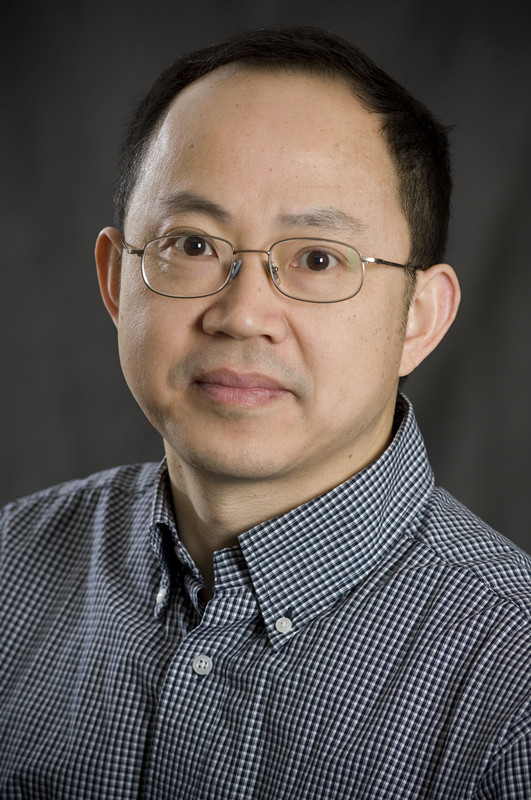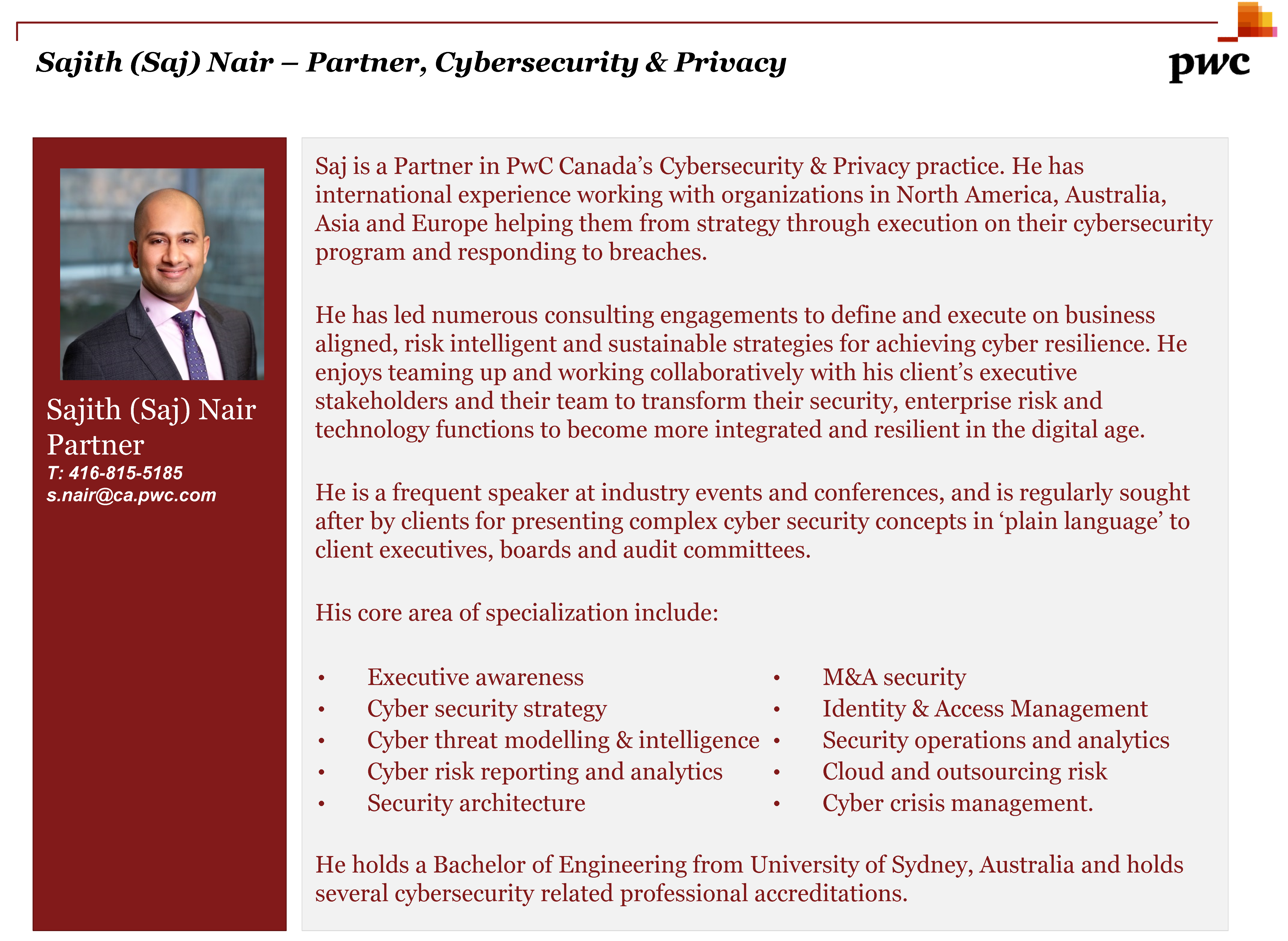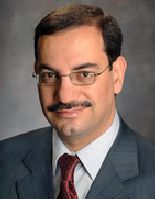
Prof. Ali H. Sayed
University of California, LosAngeles
Presentation Slides
Prof. Ali H. Sayed
University of California, LosAngeles
Abstract: Network science deals with issues related to the aggregation, processing, and diffusion of information over graphs. While interactions among agents can be studied from the perspective of cluster formations, degrees of connectivity, and small-world effects, it is the possibility of having agents interact dynamically with each other, and influence each other's behavior, that opens up a plethora of notable possibilities. For example, examination of how local interactions influence global behavior can lead to a broader understanding of how localized interactions in the social sciences, life sciences, and system sciences influence the evolution of the respective networks. In this presentation, we examine the learning behavior of adaptive networked agents over both strongly and weakly-connected graphs. The discussion will reveal some interesting patterns of behavior on how information flows over graphs. In the strongly-connected case, all agents are able to learn the desired true state within the same accuracy level, thus attaining a level of “social equilibrium,” even when the agents are subjected to different noise conditions. In contrast, in the weakly-connected case, a leader-follower relationship develops with some agents dictating the behavior of other agents regardless of the local information clues that are sensed by these other agents. The findings clarify how asymmetries in the exchange of data over graphs can make some agents dependent on other agents. This scenario arises, for example, from intruder attacks by malicious agents, from the presence of stubborn agents, or from failures by critical links..
Biography: A. H. Sayed is a distinguished professor and former chairman of electrical engineering at UCLA (www.ee.ucla.edu/asl). An author/co-author of over 480 publications and six books, his research involves several areas including adaptation and learning, statistical inference, network and data science, and biologically-inspired designs. His work has been recognized with several awards including the 2015 Education Award from the IEEE Signal Processing Society, the 2014 Athanasios Papoulis Award from the European Association for Signal Processing, the 2013 Meritorious Service Award and the 2012 Technical Achievement Award from the IEEE Signal Processing Society, the 2005 Terman Award from the American Society for Engineering Education, and the 2003 Kuwait Prize. He has been awarded several Best Paper Awards from the IEEE, and is a Fellow of both the IEEE and the American Association for the Advancement of Science (AAAS). He is recognized as a Highly Cited Researcher by Thomson Reuters. He is currently serving as President-Elect of the IEEE Signal Processing Society during the two-year period 2016-2017, followed as President during 2018-2019.
Read more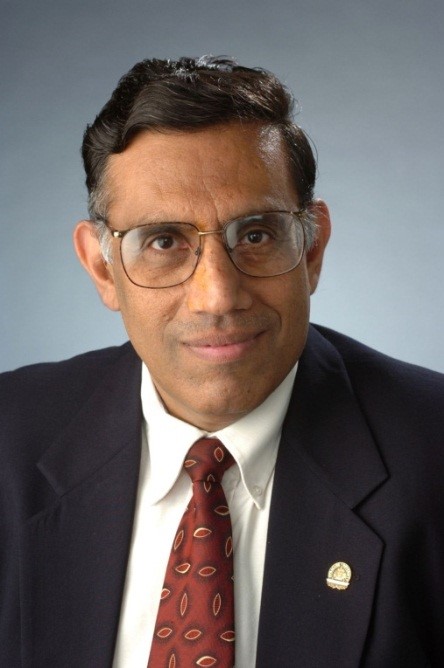
Prof. Pramod K. Varshney
Syracuse University
Presentation Slides
Prof. Pramod K. Varshney
Syracuse University
Abstract: Wireless Sensor Networks (WSNs) often operate in environments where available energy and bandwidth are limited. It is imperative that suitable resource management policies be adopted to maximize system performance while prolonging the lifetime of the WSN. This talk will provide a review of the current state-of-the-art of sensor management approaches for estimation problems while using WSNs. This will be followed by a more detailed discussion on multi-objective optimization based sensor management for target tracking and sensor management for estimation in crowdsourcing based WSNs.
Biography: Pramod K. Varshney was born in Allahabad, India, on July 1, 1952. He received the B.S. degree in electrical engineering and computer science (with highest honors), and the M.S. and Ph.D. degrees in electrical engineering from the University of Illinois at Urbana-Champaign in 1972, 1974, and 1976 respectively. During 1972-76, he held teaching and research assistantships at the University of Illinois. Since 1976 he has been with Syracuse University, Syracuse, NY where he is currently a Distinguished Professor of Electrical Engineering and Computer Science and the Director of CASE: Center for Advanced Systems and Engineering. He served as the Associate Chair of the department during 1993-96. He is also an Adjunct Professor of Radiology at Upstate Medical University in Syracuse, NY. His current research interests are in distributed sensor networks and data fusion, detection and estimation theory, wireless communications, physical layer security, image processing, and radar. He has published extensively. He is the author of Distributed Detection and Data Fusion, published by Springer-Verlag in 1997. While at the University of Illinois, Dr. Varshney was a James Scholar, a Bronze Tablet Senior, and a Fellow. He is a member of Tau Beta Pi and is the recipient of the 1981 ASEE Dow Outstanding Young Faculty Award. He was elected to the grade of Fellow of the IEEE in 1997 for his contributions in the area of distributed detection and data fusion. In 2000, he received the Third Millennium Medal from the IEEE and Chancellor’s Citation for exceptional academic achievement at Syracuse University. He is the recipient of the IEEE 2012 Judith A. Resnik Award. He received an honorary doctor of Engineering degree from Drexel University in 2014. He is on the editorial boards of Journal on Advances in Information Fusion and IEEE SP Magazine. He was the President of International Society of Information Fusion during 2001.
Read more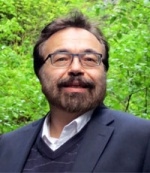
Prof. Georgios B. Giannakis
University of Minnesota
Presentation Slides
Prof. Georgios B. Giannakis
University of Minnesota
Abstract: Cyber-physical systems (CPS) are engineered systems with built-in seamless integration of computational and physical components. Fundamental advances in sensing, learning, control, and information technologies, are well motivated to endow CPS with resilience, adaptability, scalability, and sustainability. In this context, the present talk will start with distributed and robust optimization algorithms for estimating the state of future power grids. A framework will be then put forth for distributed power flow optimization tailored for smart microgrids. Leveraging dual decomposition, a distributed demand response management scheme will be introduced next to gain robustness to communication network outages. Finally, a distributed electric vehicle charging protocol will be presented, featuring affordable computational requirements and tolerance to random cyber delays. Efficacy of the novel approaches will be assessed using standard IEEE power grid benchmark distribution feeders.
Biography: Georgios B. Giannakis (Fellow’97) received his Diploma in Electrical Engr. from the Ntl. Tech. Univ. of Athens, Greece, 1981. From 1982 to 1986 he was with the Univ. of Southern California (USC), where he received his MSc. in Electrical Engineering, 1983, MSc. in Mathematics, 1986, and Ph.D. in Electrical Engr., 1986. Since 1999 he has been a professor with the Univ. of Minnesota, where he now holds an ADC Chair in Wireless Telecommunications in the ECE Department, and serves as director of the Digital Technology Center. His general interests span the areas of communications, networking and statistical signal processing – subjects on which he has published more than 370 journal papers, 630 conference papers, 20 book chapters, two edited books and two research monographs (h-index 107). Current research focuses on sparsity and big data analytics, wireless cognitive radios, mobile ad hoc networks, renewable energy, power grid, gene-regulatory, and social networks. He is the (co-) inventor of 23 patents issued, and the (co-) recipient of 8 best paper awards from the IEEE Signal Processing (SP) and Communications Societies, including the G. Marconi Prize Paper Award in Wireless Communications. He also received Technical Achievement Awards from the SP Society (2000), from EURASIP (2005), a Young Faculty Teaching Award, the G. W. Taylor Award for Distinguished Research from the University of Minnesota, and the IEEE Fourier Technical Field Award (2014). He is a Fellow of EURASIP, and has served the IEEE in a number of posts, including that of a Distinguished Lecturer for the IEEE-SP Society.
Read more
Prof. Deepa Kundur
University of Toronto
Presentation Slides
Prof. Deepa Kundur
University of Toronto
Abstract: The field of cyber-physical systems has opened up a number of opportunities and advancements in fields including energy, robotics and medicine. The scale and complexity of these systems along with their increased connectivity and automation makes the task of their cyber protection challenging. Recently researchers and standards bodies have begun to develop technological requirements and potential solutions for protecting cyber infrastructure. However, protection remains daunting to asset owners because of resources limitations. Important questions arise when identifying priorities for design and protection: Which cyber components, if compromised, can lead to significant physical-level disruption? What system topologies are inherently robust to classes of cyber attack? Is the additional information available through advanced information technology worth the increased security risk? We assert that a key research challenge in addressing these fundamental questions lies in the effective understanding of the cyber-physical synergy within these systems. This gives rise to the problem of cyber-physical system security. In this talk, we introduce this emerging problem in the context of the emerging smart grid and present analytical and empirical techniques for modeling cyber-physical interactions. We demonstrate how our approaches enable the identification of novel grid vulnerabilities and the evaluation of the relative impacts of cyber attacks on the flow of electricity. The overall framework facilitates more comprehensive risk analysis and guidelines for secure smart grid and more general cyber-physical systems development.
Biography: Deepa Kundur is a Professor and Director of the Centre for Power & Information in The Edward S. Rogers Sr. Department of Electrical & Computer Engineering at the University of Toronto. She also currently serves as Associate Chair in the Division of Engineering Science. A native of Toronto, Canada, she received the B.A.Sc., M.A.Sc., and Ph.D. degrees all in Electrical and Computer Engineering in 1993, 1995, and 1999, respectively, from the University of Toronto. From January 2003 to December 2012 she was a faculty member in Electrical & Computer Engineering at Texas A&M University, and from September 1999 to December 2002 she was a faculty member in Electrical & Computer Engineering at the University of Toronto. Professor Kundur’s research interests lie at the interface of cyber security, signal processing and complex dynamical networks. She is an author of over 150 journal and conference papers. She is also a recognized authority on cyber security issues and has appeared as an expert in popular television, radio and print media. Professor Kundur has participated on several editorial boards and currently serves on the Advisory Board of IEEE Spectrum. She also currently serves as General Chair for the Workshop on Communications, Computation and Control for Resilient Smart Energy Systems at ACM e-Energy 2016, General Chair for the Workshop on Cyber-Physical Smart Grid Security and Resilience at Globecom 2016, General Chair for the Symposium on Signal and Information Processing for Smart Grid Infrastructures at GlobalSIP 2016 and Symposium Co-Chair for the Communications for the Smart Grid Track of ICC 2017. Professor Kundur’s research has received best paper recognitions at numerous venues including the 2015 IEEE Smart Grid Communications Conference, the 2015 IEEE Electrical Power and Energy Conference, the 2012 IEEE Canadian Conference on Electrical & Computer Engineering, the 2011 Cyber Security and Information Intelligence Research Workshop and the 2008 IEEE INFOCOM Workshop on Mission Critical Networks. She has also been the recipient of teaching awards at both the University of Toronto and Texas A&M University. She is a Fellow of the IEEE.
Read moreProf. Tongwen Chen
University of Alberta
Abstract: Event based systems, event triggered systems, or event driven systems, find applications in wireless automation and cyber-physical systems. In event based systems, the goal is to achieve good system performance with reduced communication rates. In this talk, we introduce the concept of event driven sampling, compare it with the time driven sampling, and study their impact on control and estimation. In particular, we discuss event based state estimation – the motivation, basic research problems, and potential applications.
Biography: Tongwen Chen is presently a Professor of Electrical and Computer Engineering at the University of Alberta, Edmonton, Canada. He received the BEng degree in Automation and Instrumentation from Tsinghua University (Beijing) in 1984, and the MASc and PhD degrees in Electrical Engineering from the University of Toronto in 1988 and 1991, respectively. His research interests include computer and network based control systems, event triggered control, process safety and alarm systems, and their applications to the process and power industries. He has served as an Associate Editor for several international journals, including *IEEE Transactions on Automatic Control*, *Automatica*, and *Systems and Control Letters*. He is a Fellow of IEEE, IFAC, as well as Canadian Academy of Engineering.
Read more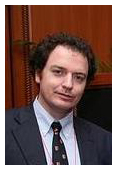
Prof. Mark Coates
McGill University
Presentation Slides
Prof. Mark Coates
McGill University
Abstract: During the past two decades years there has been a tremendous amount of work on communication and energy-efficient methods for distributed estimation in cyberphysical systems and sensor networks. In this talk I will introduce and review state-of-the-art methods for distributed estimation and tracking using gossip and consensus algorithms. I will begin with a review of gossip algorithms for distributed averaging, focusing in particular on the push-sum and broadcast gossip algorithms which are especially attractive for use in wireless sensor networks. Following this, I will discuss decentralized algorithms for estimation and tracking, with a focus on distributed particle filtering. A major challenge in the distributed setting is to fuse information contained in the measurements gathered at each sensor in a communication-efficient manner. I will highlight methods that have been developed during the past five years for reducing the communication overhead. I will concluded by discussing some of the major current research challenges in this domain, including how to perform distributed tracking of an unknown number of objects by combining information from multiple sensors, and how to successfully perform on-line estimation for high-dimensional systems.
Biography: Prof. Mark Coates received a B.E. degree (first-class honor) in computer systems engineering from the University of Adelaide, Australia, in 1995, and a Ph.D. degree in information engineering from the University of Cambridge, United Kingdom, in 1999. He joined McGill University (Montreal, Canada) in 2002, where he is currently an associate professor in the department of electrical and computer engineering. He was awarded the Texas Instruments Postdoctoral Fellowship in 1999 and was a research associate and lecturer at Rice University, Texas, from 1999 through 2001. He was an associate editor of IEEE Transactions on Signal Processing from 2007 through 2011 and is currently a senior area editor of IEEE Signal Processing Letters. His research interests include communication and sensor networks, statistical signal processing, machine learning, and Bayesian and Monte Carlo inference.
Read more
Prof. Usman Khan
Tufts University
Presentation Slides
Prof. Usman Khan
Tufts University
Abstract: A key feature of mobile, multi-agent systems, e.g., sensor networks, team of robots, air/underwater vehicles, is their autonomous operation. In other words, such systems are envisioned to perform the desired tasks without any help of a command center or a base station. These requirements are often driven by the underlying application where safety or security concerns limit human access, e.g., detection of radiation leaks in a nuclear power plant, or tracking a suspicious vehicle in an enemy zone. The agents further have resource constraints that restrict the agent behavior, interactions, and their other physical capabilities.
In this talk, I will present distributed algorithms that are motivated by local communication and low-order computation at the agents while maintaining an autonomous operation. In this context, I will go over our recent work on opportunistic localization (finding/tracking physical locations) over dynamic, non-deterministic networks of mobile agents with applications in remote sensing, monitoring, and inspection. I will describe two specific projects where such techniques are being developed: (i) structural health monitoring of a Tufts University footbridge; and, (ii) inspection of a NASA supported inflatable lunar habitat at the University of Maine. If time permits, I will describe a few other ongoing projects in my lab that involve graph-theoretic estimation and optimization over directed graphs.
Biography: Usman A. Khan received his B.S. degree (with honors) in Electrical Engineering from University of Engineering and Technology, Lahore-Pakistan, in 2002, M.S. degree in Electrical and Computer Engineering (ECE) from University of Wisconsin-Madison (UW-Madison) in 2004, and Ph.D. degree in ECE from Carnegie Mellon University in 2009. From Sep. 2009 to Dec. 2010, he was a post-doctoral researcher in the Electrical and Systems Engineering department at the University of Pennsylvania. Currently, he is with the ECE Department at Tufts University where he joined as an Assistant Professor in Jan. 2011. He spent Spring 2015 as a Visiting Professor at KTH, Sweden, while on sabbatical from Tufts. His research interests lie in efficient operation and planning of complex infrastructures and include statistical signal processing, networked control and estimation, and distributed algorithms. Dr. Khan received the NSF Career award in Jan. 2014 and is an IEEE Senior Member since Feb. 2014. He is on the editorial board of IEEE Transactions on Smart Grid and an associate member of Sensor Array and Multichannel Technical Committee with the IEEE Signal Processing Society. He has served on the Technical Program Committees of several IEEE conferences and has organized and chaired several IEEE workshops and sessions. His graduate students have won multiple Best Student Paper awards. His work was presented as Keynote speech at BiOS SPIE Photonics West--Nanoscale Imaging, Sensing, and Actuation for Biomedical Applications IX.
Read more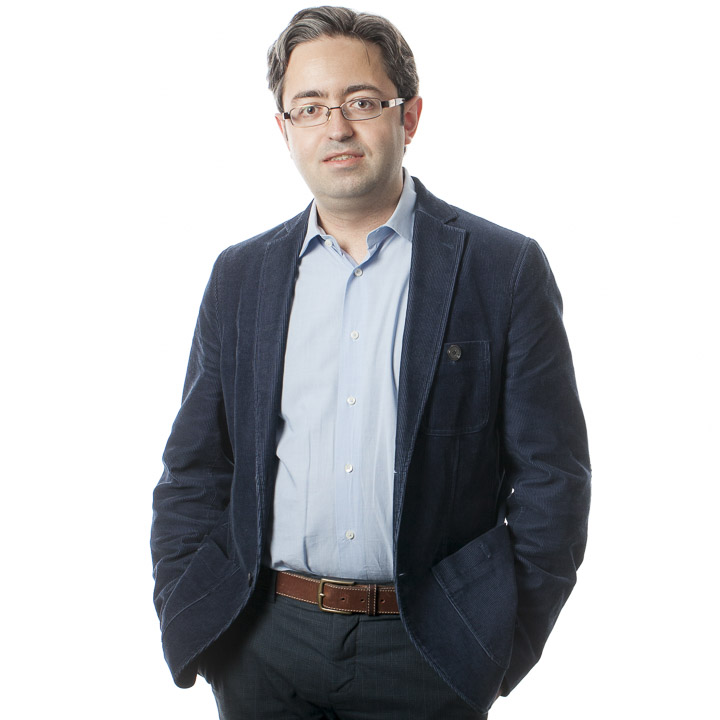
Prof. Arash Mohammadi
Concordia University
Presentation Slides
Prof. Arash Mohammadi
Concordia University
Abstract: We live in an era of data deluge. The volume, variety, and velocity of data is exploding and the ability to process such large amounts of information promises to limit the spread of epidemics, learn the dynamics of emergent social-computational systems, and protect critical infrastructures. Of particular interest to this talk is the big data collected from Cyber-Physical Systems (CPS), which exhibit a wide range of diversities. The CPSs are engineering systems with embedded control, communication and sensing capabilities that can interact with humans through cyber space. Recently there has been a surge of interest in practical and opportunistic applications of CPSs including: (i) State prediction for analyzing contingencies and taking preventive actions against possible failures in smart power grids; (ii) Optimizing the reliability of CPSs using decentralized sensor resource management techniques, and; (iii) Surveillance applications for following a reference target in decentralized camera networks. State forecasting is the core part of all these problems, which is the focus of this talk. The first part of this talk is devoted to large-scale CPSs with nonlinear dynamics and sparse observations. I present a multi-rate consensus/fusion based distributed estimation framework for scenarios where network connectivity is intermittent. A novel distributed sensor selection algorithm is then presented with the objective of dynamically activating a time-variant subset of sensor nodes for adaptive resource management in CPSs. The second part of this talk is motivated by recent evolution of cutting-edge sensor technologies with complex-valued measurements in CPSs. The rapid growth of CPSs and the fact that their applications are safety critical makes identification and prevention of smart cyber-attacks on their control unit of significant practical importance. I propose/expose non-circular data injection attack model and present a novel detection methodology by transforming the attack detection problem into the problem of comparing statistical distance measures.
Biography: Prof. Mohammadi received B.Sc. degree from University of Tehran in 2005, the M.Sc. degree in from Amirkabir University of Technology (Tehran Polytechnic) in 2007, and Ph.D. from York University in 2013. He is currently an Assistant Professor with Concordia Institute for Information Systems Engineering (CIISE), Concordia University, Montreal, Canada. Prior to joining Concordia University, he was a Postdoctoral Fellow at Department of Electrical and Computer Engineering, University of Toronto, Canada. He is the Vice-Chair of IEEE Signal Processing Montreal Chapter. He serves as Guest Editor in IEEE TRANSACTIONS ON SIGNAL AND INFORMATION PROCESSING OVER NETWORKS on "Distributed Signal Processing for Security and Privacy in Networked Cyber-Physical Systems". He is the Organizing Committee chair of "IEEE Signal Processing Society Winter School on Distributed Signal Processing for Secure Cyber- Physical Systems". His research interests include: cyber-physical systems; information fusion; distributed signal processing for agent networks; secure networked control systems; consensus algorithms, large-scale dynamical systems, and; smart grids. He has authored about 40 technical contributions, including invited ones, published in international journals and conference proceedings of high calibre. Dr. Mohammadi has received several distinguishing awards, including the Eshrat Arjomandi Award for outstanding Ph.D. dissertation from Electrical Engineering and Computer Science Department of York University in 2013, and one of the best student paper awards from IEEE International Conference on Information Fusion (FUSION'12).
Read more